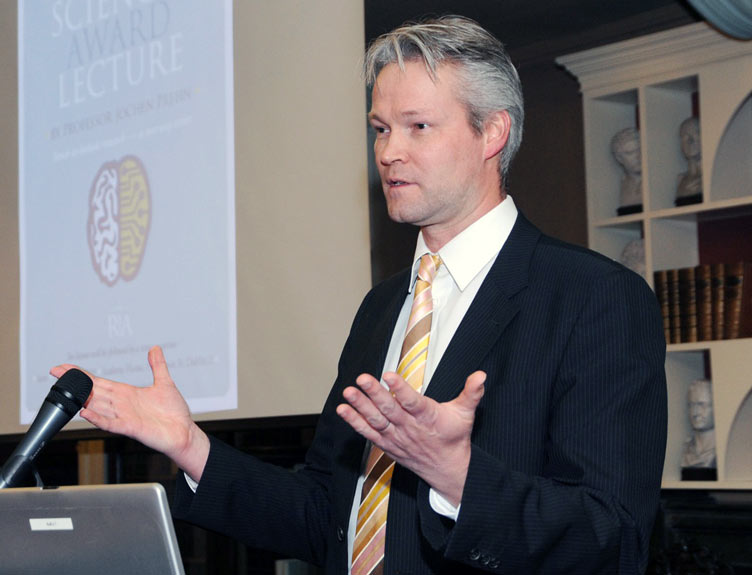RCSI researchers reveal mechanisms behind insulin producing cells in diabetes

Researchers at RCSI and the Mater Misericordiae University Hospital have gained new insights into the mechanisms at work in diabetes which may lead to the development of new treatments for the disease.
The study, published in the November issue of the journal Diabetes, is the first study to show that when insulin producing cells die, a signal is sent to nearby cells to produce a regenerating protein which triggers these surrounding cells to reproduce. Understanding these mechanisms of how the insulin producing cells (known as beta cells) regenerate could result in new opportunities for drug treatments for people with diabetes, including those who suffer from type 2, the most common form of diabetes.
An estimated 141,000 people in the Republic of Ireland have diabetes, with 10% of those suffering from type 1 diabetes and the remainder suffering from type 2 diabetes. Diabetes is characterised by high blood glucose levels that result from defects in the body's ability to produce and/or use insulin.
Commenting on the significance of the research, Professor Jochen Prehn, Professor of Physiology, RCSI, said: "It is well established that a decrease in the amount of beta cells contributes to the development of diabetes and that there is increased beta cell death in type 1 and type 2 diabetes. The findings of this research show that death of old and birth of new beta cells are connected. Our data shows that even in type 1 diabetes, there is a constant attempt of the pancreas to regenerate and produce new beta cells. This discovery paves the way for finding new means to stimulate the regeneration of insulin producing cells which are deficient in people with diabetes."
"The development of treatments to maintain a healthy level of insulin producing cells, could dramatically improve the health of subjects with diabetes and avoid cost to the healthcare system from secondary complications such as stroke, kidney failure, heart failure, blindness and amputations," Professor Prehn concluded.
The discovery was made while studying a specific kind of inherited type of diabetes called maturity onset diabetes of the young (MODY) which represents approx 5% of all diabetes cases and is caused by a single gene defect.
The lead co-author on the paper is Dr Caroline Bonner, Department of Physiology and Medical Physics, RCSI who conducted the research as part of her PhD along with Professor Prehn and a research and clinical team led by Dr Maria Byrne, Consultant Endocrinologist, and Dr Siobhan Bacon (lead co-author), Specialist Registrar in Endocrinology at the Mater Misericordiae University Hospital. While the RCSI team demonstrated the protein signal was produced when insulin producing cells died in the laboratory, the team from the Mater demonstrated that this protein is also detectable in the serum of subjects with diabetes. "We believe that this protein may also serve as a marker to check in the clinic whether new diabetes treatments are working effectively to maintain a healthy level of insulin producing cells," added Dr Byrne.
The research was funded by the Health Research Board and the Mater Foundation.



